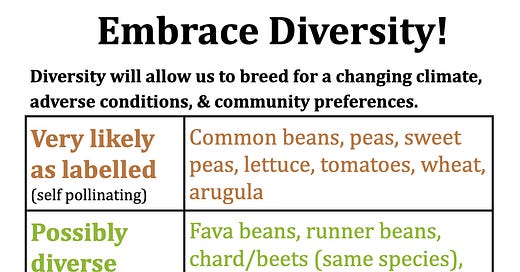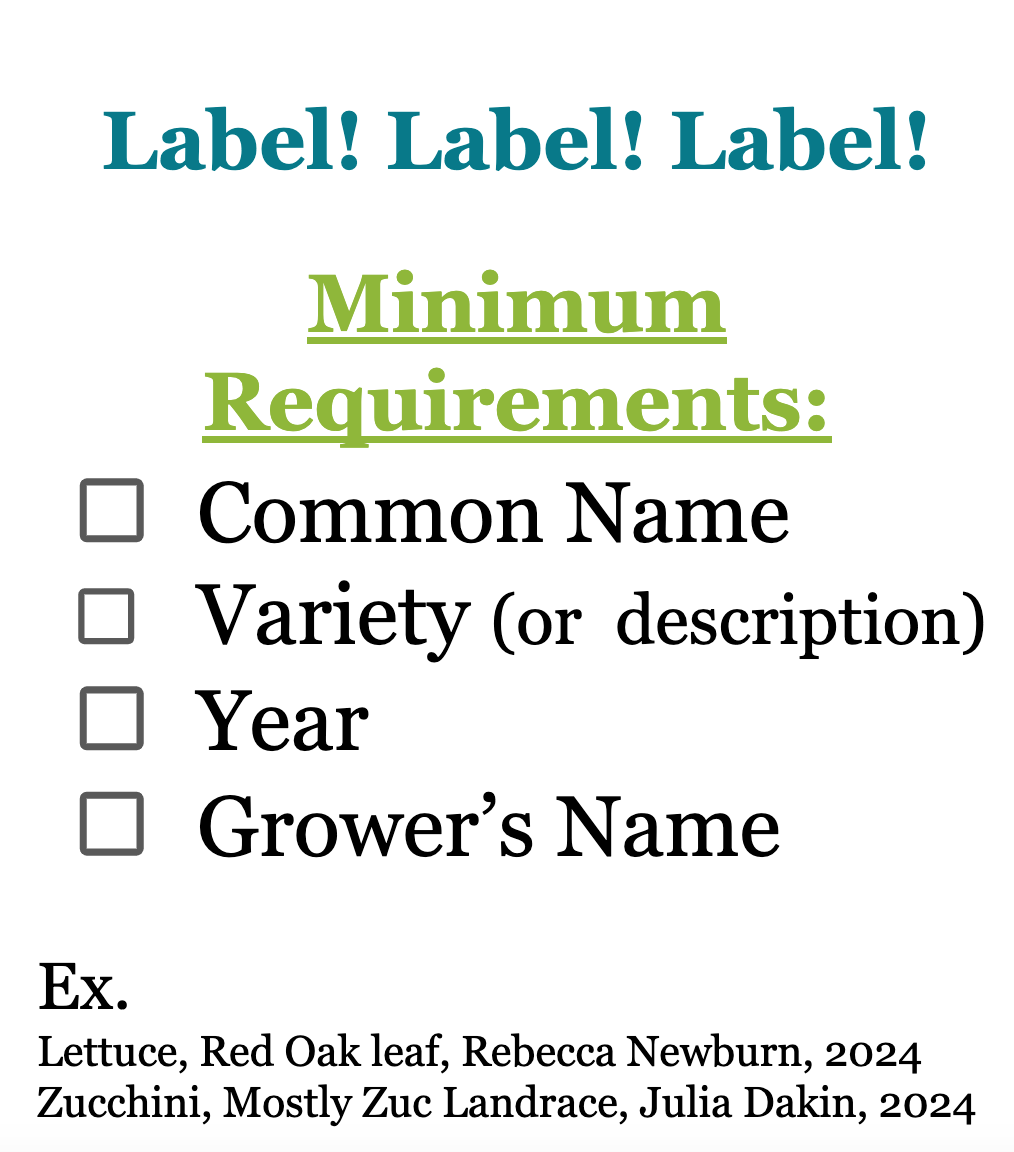With National Seed Swap Day fast approaching on January 25, it’s the perfect time to brush up on evaluating seed quality.
Check out this awesome video about hosting a seed swap, from the Napa County Seed Library!
Whether you’re attending a seed swap, borrowing from a seed library, or deciding which seeds to stock in your own collection, it’s essential to evaluate their quality. Some gardeners prioritize specific varieties and want their plants to grow true-to-type, mirroring the parent plant, while others welcome genetically diverse mixes. No matter your preference, understanding seed quality can save you time and ensure a successful growing season. The main criteria many people approach this are by these two characteristics: seed viability and true-to-type/diverse.
Seed Viability
We encourage you to print out the Seed Saving and Seed Viability Chart as a personal reference or to post in your seed library. This helps you to identify if the seeds that are donated or that you are borrowing are likely to germinate based on the age of the seed. Some seeds can last for years. While other families, such as the alliums (ex. leeks, chives, and onions), have a lifespan of about 2 years.
Reminder: When borrowing or sharing seeds, always record the year they were harvested.
True-to-Type or Diverse?
Label! Label! Label! is the mantra of a well-organized seed exchange whether it’s a seed library, Seedy Saturday, or seed swap. Here is a helpful Seed Sharing Guide that seed libraries and swappers can use to determine if they should share the seeds and how they should be labelled to ensure that borrowers have a positive experience.
This poster can be used to post in the library to help people understand what is likely as labelled and what is probably a diverse mix. This poster along with seed swap signage can be downloaded.
More Seed Signage
Clear and informative signage is crucial for a well-organized seed library or exchange. To help, we’ve created a sign highlighting the minimum labeling requirements for seeds. This can be displayed prominently in your seed library or at seed swaps to ensure participants have the necessary information to share and select seeds responsibly. Consider including details like the seed variety, collection year, growth region, and any specific planting notes.
Hosting a Seed Swap
If you’re thinking about hosting your own seed swap, now is the perfect time!
Seed swaps are a fantastic way to bring together your community, promote seed sharing, and diversify local gardens. To help you get inspired, don’t miss the upcoming Urban Farm Podcast airing on January 14, featuring Rebecca Newburn, Founder of the Seed Library Network. Rebecca will be sharing valuable insights and practical tips for organizing a successful seed swap. You don’t want to miss it!
For additional guidance, revisit our last issue of Cool Beans! 🫘, which focused on the ins and outs of hosting seed swaps. Be sure to also explore our comprehensive Seed Swap Toolkit, where you’ll find printable resources, step-by-step instructions, and ideas for making your event a hit. Hosting a seed swap is not only about exchanging seeds but also about building connections, sharing knowledge, and fostering a deeper appreciation for gardening and biodiversity.
Upcoming Events & Opportunities
Arizona State University Seed Library Webinar
The University of Arizona and the U of A Cooperative Extension is hosting a webinar open to anyone interested in seed libraries! This virtual event will take place on Thursday, January 23, 2025, from 9:00 AM to 4:00 PM MST. Join presenters from all around Arizona, New Mexico, Colorado and California as they talk about how to start seed libraries and seed herbariums, clean and store seed after harvest, curate a seed library for your local conditions, the legal requirements for seed libraries and the importance of native plant seed libraries. There will also be a research highlight about Milkweed germination. While a couple of the presentations are centered around the southwestern U.S., much of the information can be used elsewhere.
Questions: anitathompson@arizona.edu.
Seed School Online
Bill McDorman, co-founder of the Rocky Mountain Seed Alliance and the Great American Seed Up, has partnered with Urban Farm to offer a 7-week online seed school. Sign up now to get the class at the discounted price of $29!
January is the perfect month to bring your community together for a seed swap. With National Seed Swap Day on January 25, there’s no better time to celebrate the joy of gardening and the power of sharing seeds. Start organizing now and make this year’s swap your best one yet!






